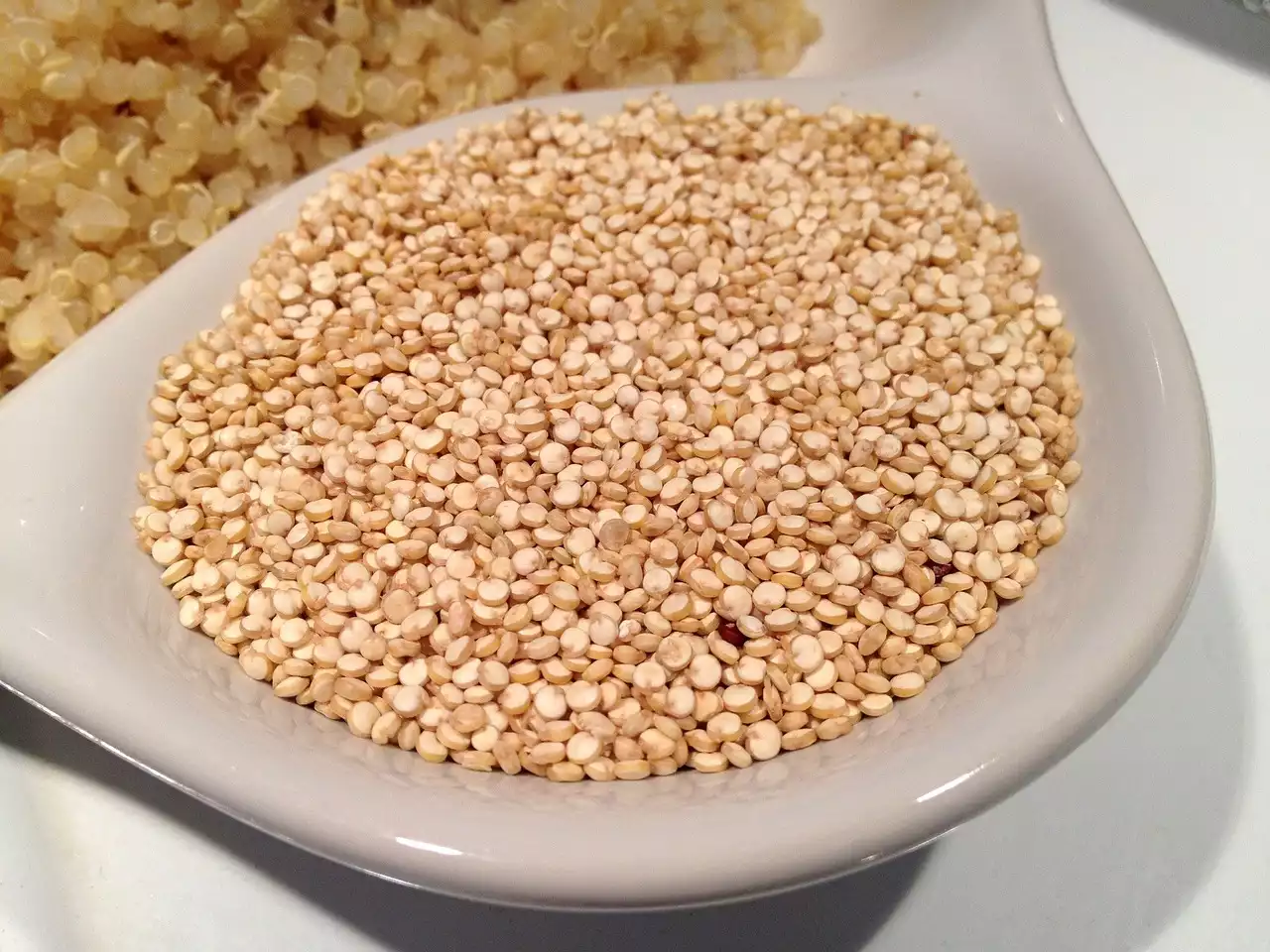Protein is an essential nutrient for our bodies, playing a crucial role in building and repairing tissues, maintaining healthy bones, and producing hormones and enzymes. While many people associate protein with meat, there are plenty of vegetarian sources of protein that can provide all the protein and other nutrients our bodies need. In fact, many vegetarian protein sources can be just as rich in protein, if not more so, than their animal-based counterparts. In this article, we'll explore the top 10 surprising sources of vegetarian protein, complete with nutritional information and recipe ideas.
1. Seitan
Seitan is a meat substitute made from wheat gluten, which gives it a meaty texture and high protein content. It's often used in vegetarian and vegan recipes as a substitute for meat, and can be cooked in a variety of ways, from grilling to stir-frying. A 100-gram serving of seitan contains around 25 grams of protein, making it a great source of vegetarian protein.
Recipe idea: Try this vegan seitan gyros recipe, which uses seitan as a meat substitute and is packed with flavor and protein.
2. Nutritional Yeast
Nutritional yeast is a deactivated form of yeast that's often used as a vegan cheese substitute, thanks to its nutty, cheesy flavor. It's also a great source of vegetarian protein, with just two tablespoons providing around 8 grams of protein. Nutritional yeast is also rich in other nutrients, such as vitamin B12 and zinc.
Recipe idea: Sprinkle nutritional yeast on top of popcorn or roasted vegetables for a cheesy, protein-packed snack.
3. Quinoa
Quinoa is a popular superfood that's rich in protein, fiber, and other nutrients. A 100-gram serving of quinoa contains around 4 grams of protein, making it one of the most protein-rich grains out there. Quinoa is also versatile and easy to cook, making it a great addition to salads, soups, and grain bowls.
Recipe idea: Try this quinoa and black bean salad, which is packed with protein, fiber, and flavor.
4. Hemp Seeds
Hemp seeds are a great source of vegetarian protein, as well as healthy fats and minerals. A 30-gram serving of hemp seeds contains around 9 grams of protein, making it a great addition to smoothies, salads, and snacks. Hemp seeds also have a nutty flavor that pairs well with a variety of foods.
Recipe idea: Blend hemp seeds into a smoothie for an extra protein boost, or sprinkle them on top of oatmeal for a nutty crunch.
5. Chia Seeds
Chia seeds are often associated with their high fiber content, but they're also a great source of vegetarian protein. A 28-gram serving of chia seeds contains around 4 grams of protein, as well as omega-3 fatty acids and other nutrients. Chia seeds are also versatile and can be used in a variety of recipes, from chia seed pudding to smoothies.
Recipe idea: Try this chia seed breakfast bowl, which is packed with protein, fiber, and healthy fats.
6. Spirulina
Spirulina is a type of blue-green algae that's often consumed as a supplement due to its high nutrient content. It's also a great source of vegetarian protein, with a 100-gram serving containing around 57 grams of protein. While spirulina can have a strong taste, it can be easily incorporated into smoothies, energy balls, and other recipes.
Recipe idea: Blend spirulina into a green smoothie for a protein and nutrient-packed breakfast or snack.
7. Edamame
Edamame is a type of immature soybean that's often served as a snack or appetizer. It's also a great source of vegetarian protein, with a 100-gram serving containing around 11 grams of protein. Edamame is easy to prepare and can be boiled, steamed, or roasted for a delicious and healthy snack.
Recipe idea: Try this edamame hummus recipe, which uses edamame instead of chickpeas for a protein-packed dip.
8. Amaranth
Amaranth is a gluten-free grain that's often used in porridge, salads, and other dishes. It's also a great source of vegetarian protein, with a 100-gram serving containing around 14 grams of protein. Amaranth is also rich in other nutrients, such as iron and calcium, making it a great addition to a healthy diet.
Recipe idea: Try this amaranth and lentil soup recipe, which is packed with protein, fiber, and flavor.
9. Tempeh
Tempeh is a fermented soybean product that's often used as a meat substitute in vegetarian and vegan recipes. It has a nutty flavor and meaty texture, and is a great source of vegetarian protein, with a 100-gram serving containing around 19 grams of protein. Tempeh can be baked, grilled, or sautéed for a variety of different dishes.
Recipe idea: Try this tempeh bacon BLT sandwich recipe, which uses tempeh as a meat substitute and is packed with protein and flavor.
10. Peanut Butter
Peanut butter is a delicious and versatile spread that's also a great source of vegetarian protein. Two tablespoons of peanut butter contain around 8 grams of protein, as well as healthy fats and other nutrients. Peanut butter can be used in a variety of recipes, from smoothies to desserts.
Recipe idea: Try this peanut butter and banana smoothie recipe, which is packed with protein and flavor.
In conclusion, there are plenty of surprising sources of vegetarian protein that can provide all the protein and other nutrients our bodies need. By incorporating a variety of vegetarian protein sources into our diets, we can ensure that we're getting all the nutrients we need to stay healthy and strong. So next time you're looking for a protein boost, give one of these surprising sources a try!









